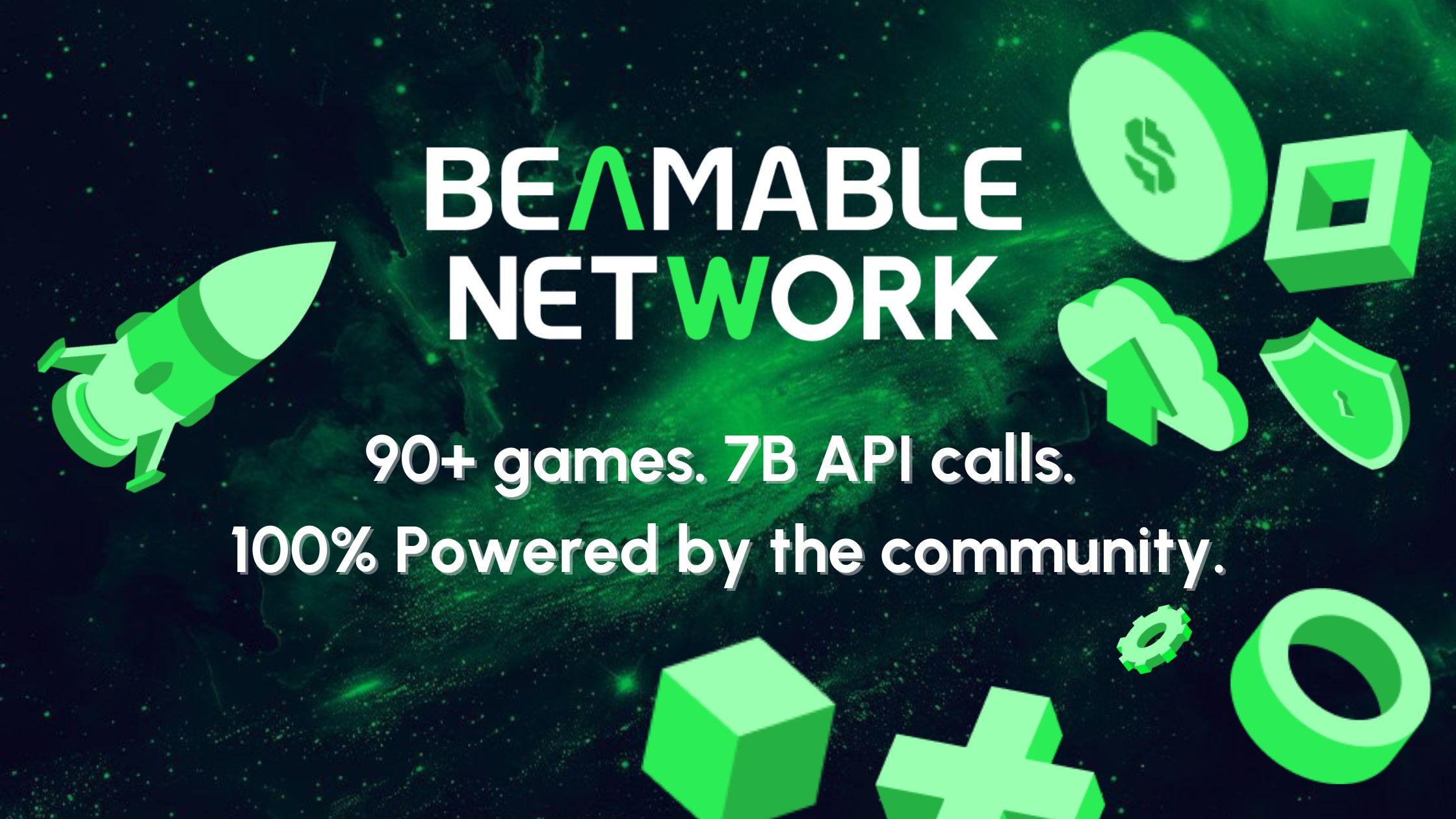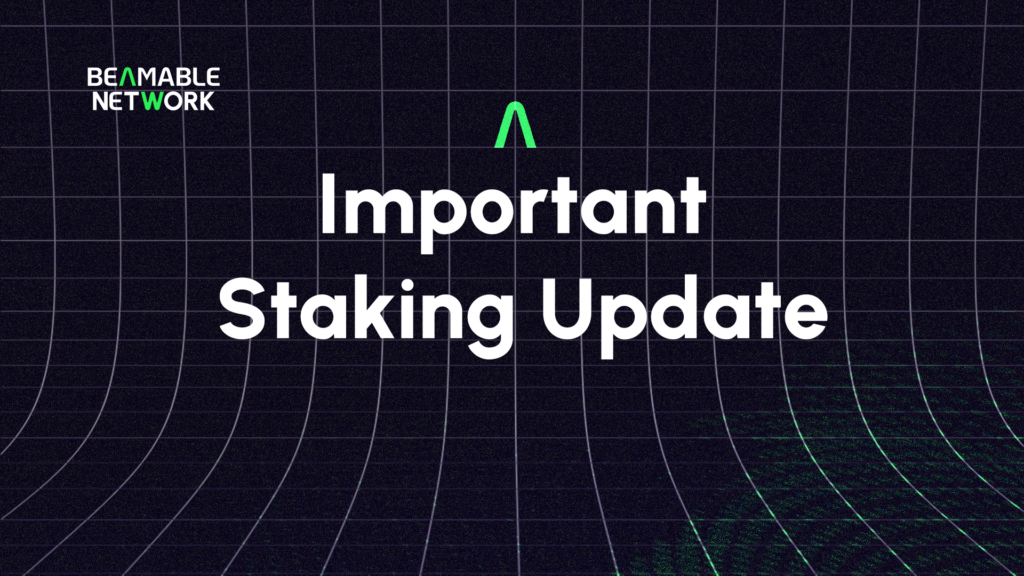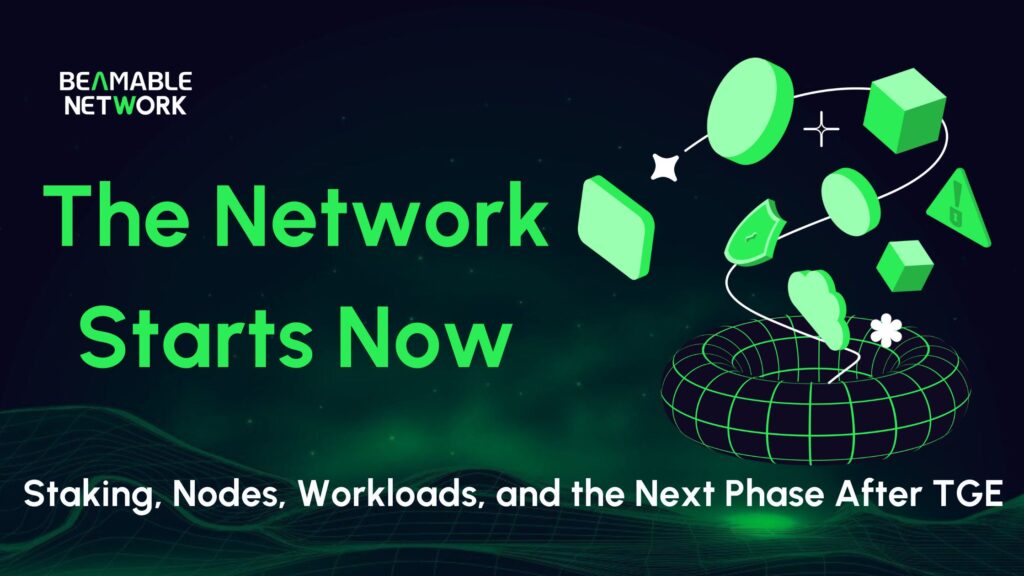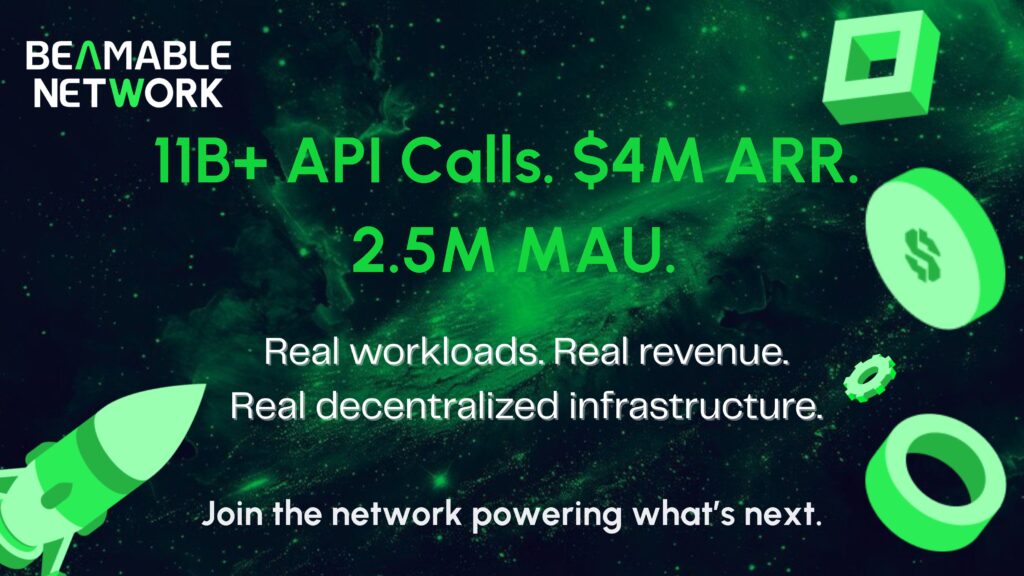A Network Built by and for the Community
Decentralized game infrastructure only works if the community is at the center. Beamable.Network was created to solve game development bottlenecks—rising backend costs, centralized lock-in, and opaque control.
Unlike projects that launch with little more than a whitepaper, Beamable.Network already powers 90+ live games, with another 150+ in the pipeline. Today, the network processes 7B+ monthly API calls, generating $3M in annual recurring revenue.
The community makes this possible:
- Node Operators: Running Worker and Checker nodes to provide scale, uptime, and verifiable infrastructure. Worker nodes stake ~40,000 $BMB while Checkers require no stake—just reputation and reliability.
- Delegators: Backing operators with as little as 500 $BMB for 1–48 months, strengthening security while earning weekly, auto-compounding rewards.
- Developers: Building games and microservices on a foundation that is transparent, flexible, and already in demand. Developers even earn royalties when others use their services.
- Players and Fans: Advocating for better, fairer game infrastructure that puts gameplay—not middlemen—first.
Incentives Aligned with Participation
Beamable.Network is designed so that everyone who participates benefits. Rewards aren’t reserved for insiders—they’re distributed across the ecosystem:
- Node Rewards: Based on uptime, availability, and performance. Operators must maintain ≥99.7% uptime to earn full rewards.
- Delegation Rewards: Weekly distributions for staked $BMB, calculated by stake size, duration, and operator reputation.
- Developer Royalties: Built-in incentives for creating microservices and tools that others adopt.
- Community Programs: 3,000 Alpha Checker Nodes sold to early community members—distributing 1% of the total $BMB supply in the first month of TGE.
This model solves the “cold start problem” that plagues many DePIN projects. Beamable launches with established demand—tens of millions of players, billions of API calls, and real revenue streams.
According to Messari’s DePIN sector map, decentralized infrastructure is one of Web3’s fastest-growing categories. Beamable.Network ensures the community is rewarded as this sector expands.
Transparency and Governance
The community also drives governance and will shape how Beamable.Network evolves. And with all votes recorded transparently on-chain, accountability is guaranteed—similar to the validator model used by the Solana Foundation.
Crucially, Beamable.Network’s treasury mechanism is designed as an alternative to traditional burn-and-mint models. Game studios can pay for compute in either $BMB or USDC. Payments made in $BMB incur lower fees, while payments in USDC are subject to higher fees (15–20%). All fees flow into the treasury, which supports long-term stability and ecosystem growth. A portion of these treasury funds may be allocated to buybacks of $BMB from the open market, but the majority is retained to sustain ongoing programs and reserves.
Why It Matters
Game developers shouldn’t have to depend on centralized infrastructure providers with their own roadmaps and opaque costs. Backend expenses are enormous—Roblox’s 2024 financials showed ~25% of revenue spent on infrastructure.
Beamable.Network flips the model by putting ownership, rewards, and control in the hands of the community. Node operators with spare capacity supply compute, cutting infrastructure costs by 50% or more compared to hyperscalers like AWS or Google Cloud.
And the opportunity is massive. With 3.4B players worldwide generating $184B+ in annual revenue for the video game industry, growing to 3.8B players by 2027, game studios need scalable, transparent, and cost-effective infrastructure.
As Newzoo forecasts, global gaming revenue will surpass $200B by 2026—fueling unprecedented demand for live service infrastructure that scales with developers’ ambitions, not against them.
FAQ: Community and Beamable.Network
Q1: How can I participate in Beamable.Network as a community member?
You can run a Checker node, delegate $BMB to node operators, or build tools and services that extend the ecosystem.
Q2: Do I need to be a developer to join?
No. Delegators and players are just as critical to the network as game studios. You can contribute by staking tokens, spreading awareness, or supporting ecosystem projects.
Q3: How are rewards distributed to the community?
Rewards are calculated weekly based on uptime, stake size/duration, and reputation. They are distributed as locked tokens with linear unlocks, with auto-compounding as a default option.
Q4: What makes Beamable.Network different from other decentralized infrastructures?
Beamable.Network is built for games, with native support for live operations, microservices, and player engagement tools—while ensuring decentralization, transparency, and shared ownership.
Q5: How does governance work on Beamable.Network?
Staking $BMB issues vote-escrowed VEBMB that determines governance power. The community can propose and vote on parameters, grants, and programs—recorded transparently on-chain.
Closing Line:
Beamable.Network is not starting from scratch—it already powers live games, billions of API calls, and millions in revenue. The future of games doesn’t belong to one company—it belongs to the community.
Join the conversation and help shape the future of decentralized game infrastructure:



